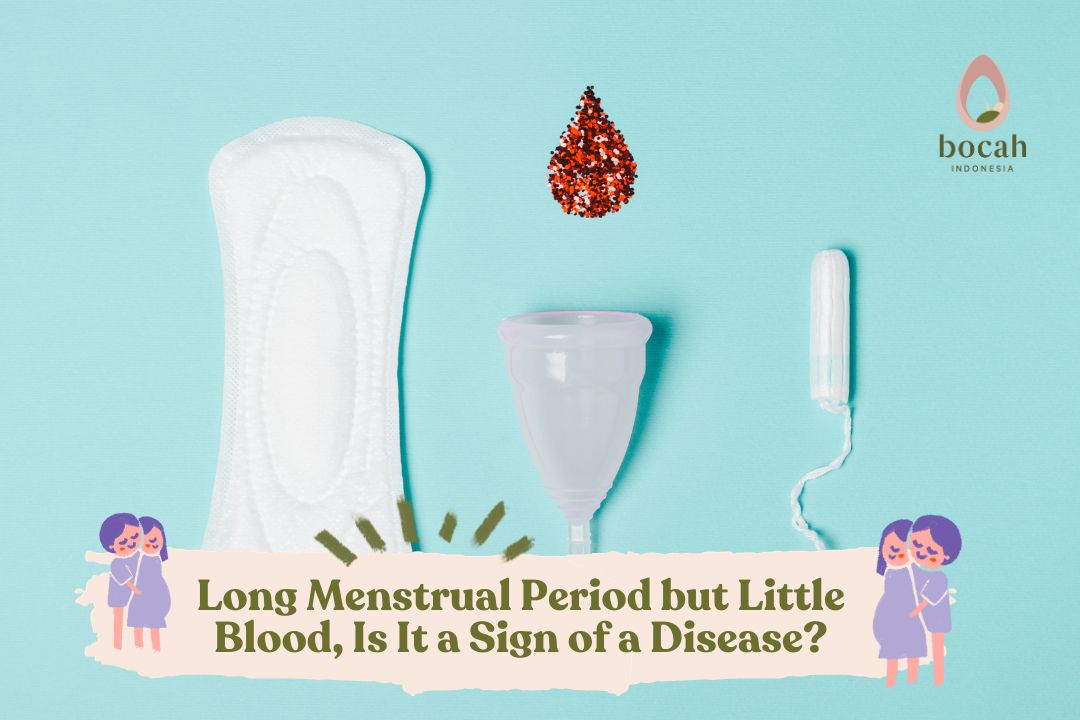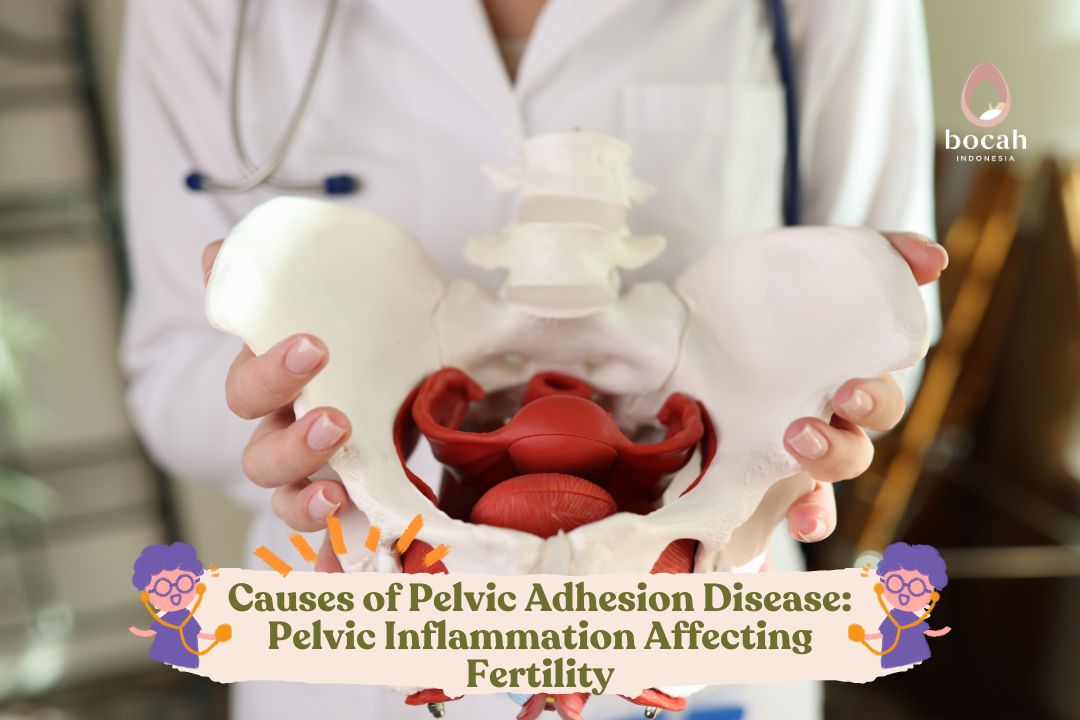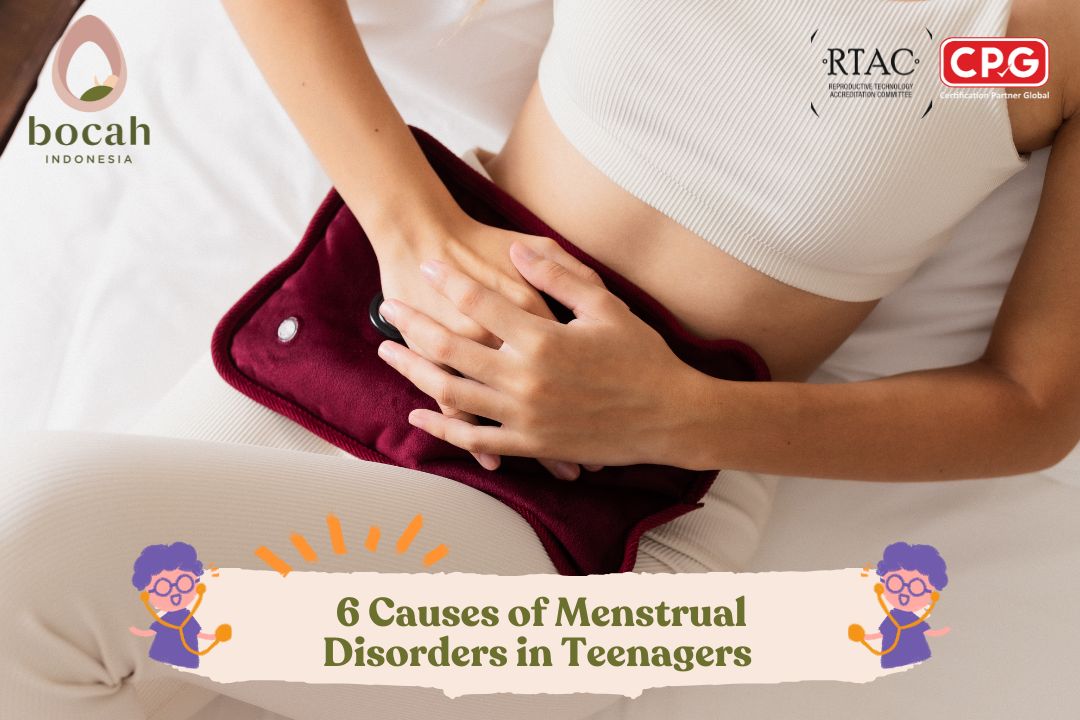Long Menstrual Period but Little Blood, Is It a Sign of a Disease?

Changes in menstrual periods and blood volume are not always indicative of danger. Moms, you can find out the causes here.
Menstrual periods usually occur every 24-38 days and last for 2-7 days. A lighter menstrual flow or longer duration than usual may not be dangerous if it happens occasionally.
However, if long periods occur regularly every month, this condition should be a cause for concern as it may indicate underlying health issues or fertility problems that could make it difficult for you to become pregnant. The same goes for experiencing very little menstrual blood each month.
Causes of Non-Medical Menstrual Changes
Generally, the duration of menstruation varies from one woman to another. For some women who experience menstruation lasting more than 7 days, this can be categorized as a long menstrual period. Here are some possible causes of a long menstrual period with little blood.
Pregnancy
Pregnancy can lead to changes in menstruation, Moms. You may experience light or heavy bleeding at the beginning of pregnancy. This bleeding is often referred to as implantation bleeding, a condition that occurs when the embryo is about to attach to the uterine wall.
Tanya Mincah tentang Promil?
Implantation bleeding is characterized by:
Occurring a few days before the usual menstrual period.
The blood color can vary, ranging from light pink to bright red or even brown.
Sometimes accompanied by cramps or pain but not always.
Very light bleeding, sometimes barely visible.
If you suspect you are pregnant because your period is lighter than usual, consider taking a pregnancy test, especially if you are not using contraception. If the test result is negative, you can wait a week and repeat the test or see if your period comes in the next cycle.
Additionally, during pregnancy, the cervix often becomes more sensitive and may bleed after intercourse, a condition known as cervical bleeding. If you are pregnant, it is important to consult with an obstetrician.
Light bleeding with a pink or brown color is usually normal during pregnancy. However, if there is heavy bleeding, bright red or dark blood, or bleeding accompanied by severe cramps or pain, it could be a sign of a problem and should be addressed with medical attention.
Lactation
If you are breastfeeding, you have a high level of prolactin in your body. This is a hormone produced by the pituitary gland to stimulate breast milk production. Prolactin also plays a role in regulating the menstrual cycle.
Your menstruation may be lighter while breastfeeding, but it usually returns to normal after the baby stops breastfeeding. Sometimes, elevated prolactin levels may be related to medication or a medical condition and should be evaluated by a healthcare provider.
Weight Loss or Gain
If your weight suddenly increases or decreases significantly, you may notice changes in your menstrual cycle. Weight loss and loss of body fat can cause your body to stop ovulating or releasing eggs each month.
Exercising too much can also affect menstruation by altering hormone levels in your body.
Stress
Emotional stress, such as the loss of a loved one or significant stressors in work or home life, can have a negative impact on the body and affect the menstrual cycle. You may experience a long period but with little blood volume.
Contraception
Using hormonal contraception can also cause changes in menstruation. It’s not uncommon for people to experience lighter or shorter periods when using birth control pills or after having a hormonal IUD inserted.
If changes in menstruation are bothersome, you can consider using other contraceptive methods, including internal and external condoms or non-hormonal IUDs. Be sure to seek advice from a doctor about the contraception method that suits you.
Age Influence
Advancing age can affect menstrual changes, in some cases making them lighter. This could mean you are entering perimenopause, a condition that may reduce your chances of getting pregnant.
Medical Conditions Leading to Menstrual Changes
Certain medical conditions can cause menstruation to become lighter. A doctor can help you determine if any of these conditions are causing changes in your menstrual symptoms.
Thyroid Disorders
Sometimes, your menstruation may be light due to thyroid abnormalities. The thyroid gland and other endocrine glands help regulate the menstrual cycle and can contribute to changes.
Polycystic Ovary Syndrome (PCOS)
Individuals diagnosed with polycystic ovary syndrome (PCOS) may also experience lighter menstruation than usual due to hormone-related disruptions typically seen in PCOS during the menstrual cycle. This condition can hinder your chances of becoming pregnant.
Asherman’s Syndrome
There are other medical conditions, such as cervical stenosis or Asherman’s syndrome (scarring of the uterus), that can cause less blood flow than expected, although cramps may still occur. Both of these conditions are rare, but they can trap menstrual blood inside the uterus.
Asherman’s syndrome is most commonly caused by scar tissue in the uterus after a dilation and curettage procedure, where tissue from the uterus is removed.
To determine if you have any of the above medical conditions, you need to consult with a doctor. If you experience long but light menstrual periods continuously, it is advisable to consult a doctor.
Especially if you are in a pregnancy program, menstruation can greatly affect the success of conceiving. Read more information about pregnancy, reproductive health, and fertility at Bocah Indonesia.
Source:
- Weiss, Robin Elise (2023), Very Well Health. 6 Common Reasons for Lighter Period, Accessed in 2023
- Mcguire (2023), Prevention, 12 Reasons Your Period Is Lighter Than Usual According to Doctors, Accessed in 2023
- Silver, Natalie (2023), Healthline, Should You Be Worried If Your Period is Light?, Accessed in 2023








